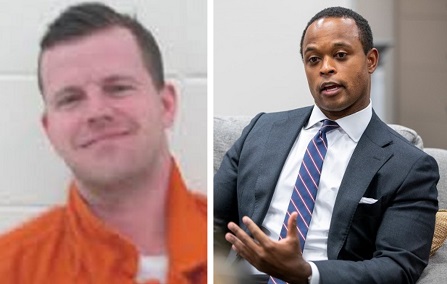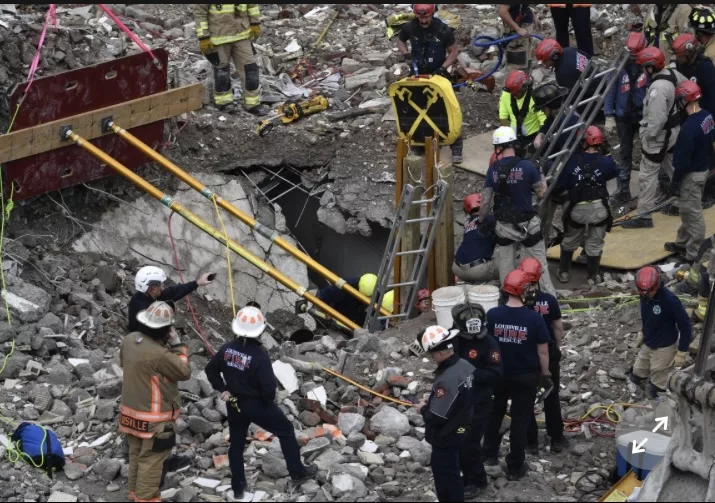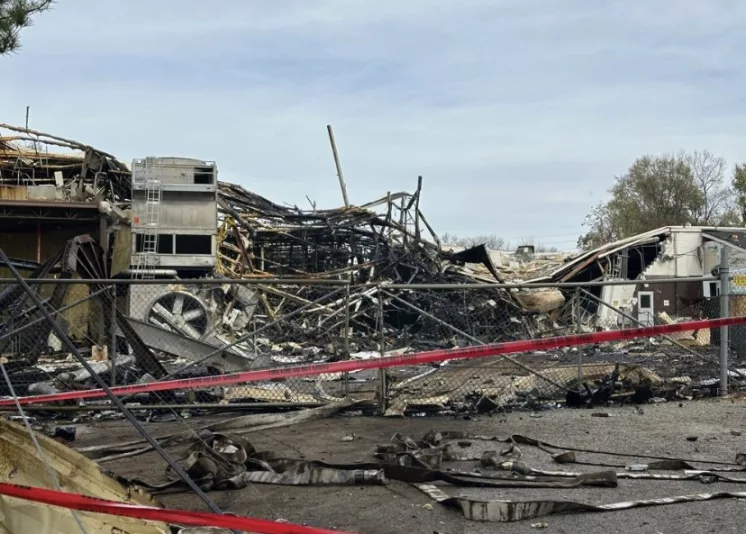
A recent Kentucky Supreme Court ruling will create a barrier to prosecuting many DUI cases, making the roads less safe, the attorney general said as he seeks another hearing.
The rehearing petition from Attorney General Daniel Cameron’s office came on the same day that the high court’s ruling came into play in a Kentucky lawmaker’s case Wednesday. Republican state Rep. Derek Lewis was acquitted of operating a vehicle under the influence.
The Supreme Court ruling was cited in a successful defense motion that prevented the prosecutor from presenting Lewis’ blood test refusal to the Laurel County jury.
Lewis was arrested near his home and charged with drunken driving a couple of hours after the 2020 General Assembly session had adjourned.
Last month, the state’s high court ruled that a defendant’s refusal to submit to a warrantless blood test cannot be used as evidence to help prove guilt or to seek stiffer punishment.
Prosecutors also cannot introduce such refusals at trial to explain away the lack of evidence regarding a suspect’s blood-alcohol level, the divided court said. The long-running case stemmed from a DUI arrest by Owensboro police several years ago.
Cameron’s petition requesting a rehearing of the Owensboro case said the ruling will “stand as a barrier” to prosecuting many impaired driving cases, Assistant Attorney General Mark Barry said. The ruling has “turned Kentucky’s statutory scheme on its head by incentivizing refusals in DUI cases, rather than compliance with statutorily authorized blood tests,” he said.
“Unless the court revisits its opinion, Kentucky roads will be less safe from impaired drivers,” Barry said.
The court’s majority cited Fourth Amendment protections against unreasonable searches and seizures, but Barry said such safeguards don’t require prosecutors “to operate at such a disadvantage.”
The prosecutor in Lewis’ case, Assistant Laurel County Attorney Bruce Bentley, said Thursday he didn’t know what impact the high court ruling had on the outcome of Lewis’ trial.
“In any one particular case, I don’t know what issue the jury hangs its hat on in determining whether a particular defendant — in this particular instance Mr. Lewis — was or was not guilty,” he said.
But more broadly, the Supreme Court ruling could make it more difficult for prosecutors to “give the jury the full picture” of a DUI case, Bentley said in a phone interview.
“Because as prosecutors, we’re not going to be able to present what I believe is to be a pretty relevant fact — that a defendant in a DUI case … refused a requested blood-test,” he said. “We can’t explain to the jury that’s why we don’t have that as available evidence to them.”
“It creates ambiguity in the jury’s mind as to why we don’t have the test,” Bentley added. “As a prosecutor, I don’t like ambiguities.”
Bentley said he was pleased the attorney general filed the rehearing petition with the Supreme Court. If necessary, he said he hopes the legislature takes up the issue during the 2022 session.
Lewis’ defense attorney, Conrad Cessna, said the Supreme Court ruling doesn’t prevent the introduction of such evidence at DUI trials.
“There is an avenue for the commonwealth — they’ll just have to follow what the ruling says,” he said in a phone interview Thursday. “It just says that there are less-intrusive means available, which are Intoxilyzers and breath tests. Or they can get a warrant for the defendant’s blood.”
(Photo l-r: state Rep. Derek Lewis, Attorney General Daniel Cameron)
The Associated Press








